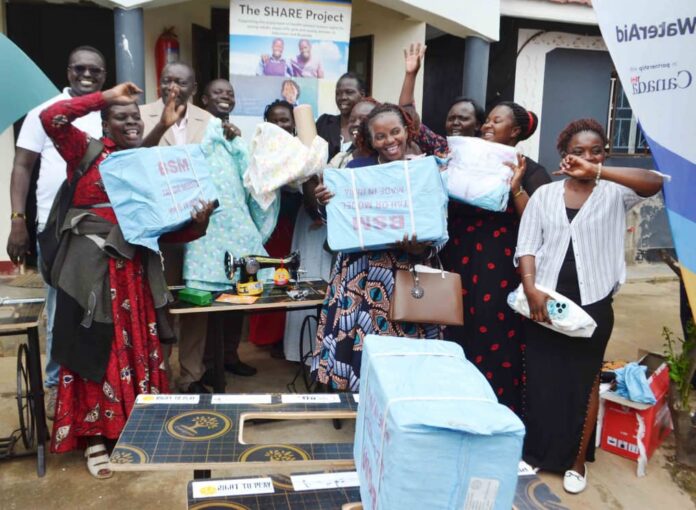Jubilation on 5th June 2025 filled the air in Makanga Town Council, Buyende District, as the community commemorated World Menstruation Day, an event organized by Right To Play under the Sexual Health and Reproductive Education (SHARE) Project program.
The arrival of Veronica Babirye Kadogo, former Buyende District Woman MP and current EALA MP, was met with enthusiastic cheers and applause, highlighting the importance of the occasion and the impact of the SHARE Project.
The event took on a poignant turn when a young girl, overcome with emotion after being invited to lead the anthems, burst into tears. Kadogo, a trained social and community health professional, quickly recognized the cause: the girl had unexpectedly started her period.
This incident served as a stark reminder of the challenges faced by girls in the district, highlighting the lack of essential resources in schools, including emergency sanitary pads, proper washrooms, and access to safe water.
This experience galvanized Kadogo to champion school sanitation programs. “Menstruation hygiene management is not a privilege, but a human right,” she declared, condemning the stigma and exclusion that girls and women face due to a natural biological process.
Speaking passionately, Kadogo emphasized that managing menstruation requires more than just sanitary pads. Access to clean water, soap, and privacy are crucial. She urged leaders to prioritize budgetary provisions for these essential resources in schools, public institutions, and homes.
Kadogo further highlighted the ongoing struggle to advocate for menstrual health within government. She recalled raising concerns in the 10th Parliament about girls missing school due to a lack of resources, advocating for free sanitary pads in schools.
She argued that if the government could provide free condoms, prioritizing menstrual health for girls was equally vital. Unfortunately, these appeals have so far been unsuccessful.
Nelson Mandela Odero, the program officer of Right to Play Uganda, outlined the SHARE Project’s multifaceted approach. This includes menstrual education, distribution of reusable cloth sanitary pads, and the creation of safe spaces for open discussions.
“By providing girls with the necessary knowledge, resources, and support, the program empowers them to manage their periods with dignity, attend school regularly, and pursue their education without interruptions,” he explained.
The program targets pupils aged 10-14, community youths aged 15-24, teachers, parents, district leaders, and health workers, impacting over 2,700 youth.
Buyende District Education Officer Dison Bwire officially handed over 91 menstrual hygiene management skills start-up kits and materials to 65 primary schools’ senior women teachers and 26 community mentors.
He emphasized the importance of advancing menstrual equality in schools and communities to address period poverty, promote gender equality, support environmental conservation, and contribute to the holistic development of girls.
Many girls, he explained, resort to unhygienic alternatives due to a lack of access to affordable sanitary products, leading to missed school days and perpetuating harmful social norms.
Emmanuel Kaigulo, Buyende District Community Development Officer, praised the SHARE Project for contributing to the achievement of the United Nations Sustainable Development Goals, particularly Goals 5 (Gender Equality) and 12 (Responsible Consumption and Production).
He called for increased awareness, peer-to-peer support in schools, child-friendly information platforms, and the provision of disposal containers (“pad pin bins”) in schools and communities.
Josephine Poni, a community mentor from Kagulu sub-county, expressed her gratitude to Right to Play for their intervention. She believes the program will empower girls and women with affordable reusable sanitary pads and valuable skills, enabling them to become economically independent and ensuring more girls attend school without fear.
To mark World Menstruation Day, the Right to Play distributed 91 branded sewing machines and materials for training to make reusable sanitary pads, worth UGX 51 million, to 65 primary schools’ senior women teachers and 26 adolescent girls and young women community mentors.
This initiative promises to bring significant relief to girls and women in Buyende, ensuring they can manage their menstruation with dignity and continue their education without interruption.
The hope is that this progress will inspire wider systemic changes and increased government investment in comprehensive menstrual hygiene management programs.



